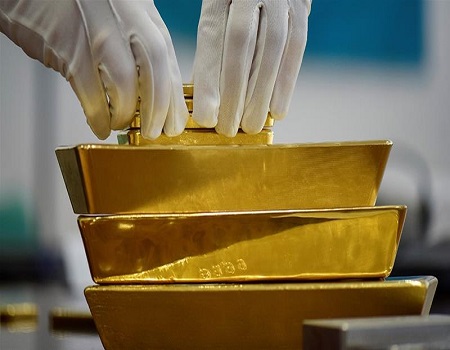Gold bars fraudulently stamped with the logos of major refineries are being inserted into the global market to launder smuggled or illegal gold, refining, and banking executives tell Reuters.
The fakes are hard to detect, making them an ideal fund-runner for narcotics dealers or warlords.
In the last three years, bars worth at least $50m, stamped with Swiss refinery logos but not actually produced by those facilities, have been identified by all four of Switzerland’s leading gold refiners and found in the vaults of JP Morgan Chase & Co, one of the major banks at the heart of the market in bullion, said senior executives at gold refineries, banks and other industry sources.
ALSO READ: Boris Johnson asks Queen to suspend Parliament to force Brexit through
Four of the executives said at least 1,000 of the bars, of a standard size known as a kilobar for their weight, have been found. That is a small share of the gold industry’s output, which is roughly 2 million to 2.5 million such bars each year. But the forgeries are sophisticated, so thousands more may have gone undetected, according to the head of Switzerland’s biggest refinery.
“The latest fake bars … are highly professionally done,” said Michael Mesaric, chief executive of refinery Valcambi. He said that perhaps a couple of thousand have been found but the likelihood is that there are “way, way, way more still in circulation. And it still exists, and it still works.”
Fake gold bars – blocks of cheaper metal plated with gold – are relatively common in the gold industry and often easy to detect.
The counterfeits in these cases are subtler: The gold is real, and very high purity, only the markings are faked.
Fake-branded bars are a relatively new way to flout global measures to block conflict minerals and prevent money-laundering. Such forgeries pose a problem for international refiners, financiers, and regulators as they attempt to purge the world of illicit trade in bullion.
High gold prices triggered a boom in informal and illegal mining since the mid-2000s. Without the stamp of a prestigious refinery, such gold would be forced into underground networks or priced at a discount.
By pirating Swiss and other major brands, metal that has been mined or processed in places where conflict, human rights abuses, or sanctioned regimes make it illegal or unacceptable for trade on the global market – including parts of Africa, Venezuela or North Korea – can be injected into the market, channeling funds to criminals or regimes that are sanctioned.
WATCH TOP VIDEOS FROM NIGERIAN TRIBUNE TV
- Relationship Hangout: Public vs Private Proposals – Which Truly Wins in Love?
- “No” Is a Complete Sentence: Why You Should Stop Feeling Guilty
- Relationship Hangout: Friendship Talk 2025 – How to Be a Good Friend & Big Questions on Friendship
- Police Overpower Armed Robbers in Ibadan After Fierce Struggle






